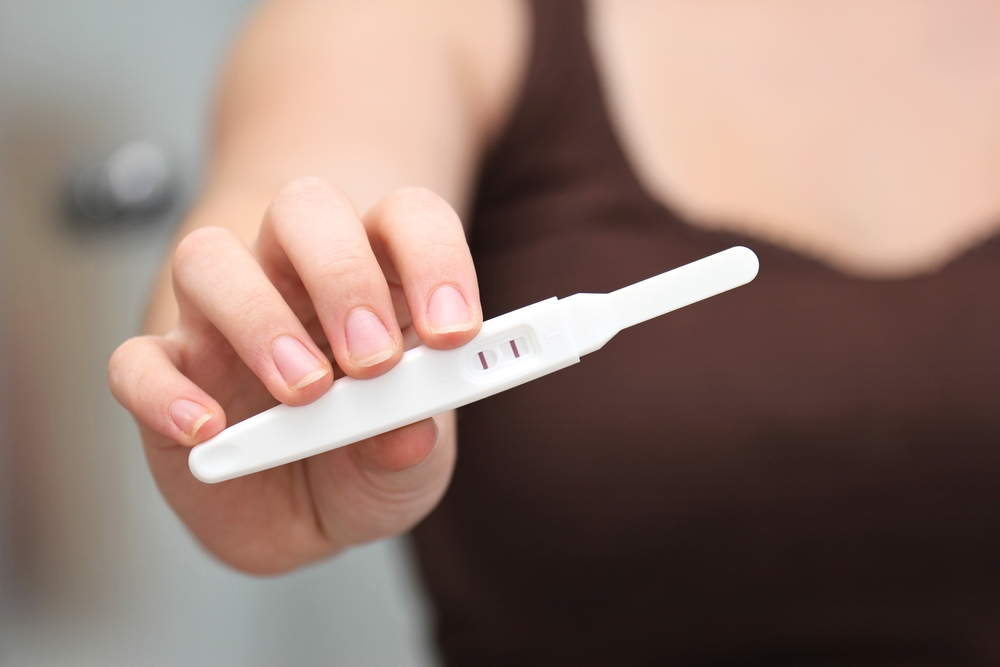Nighttime Nerves and Early Detection: Taking Pregnancy Tests in the Evening
The anticipation of pregnancy can be both exciting and nerve-wracking. For some, the urge to know might strike at any time, including evenings. This article explores the possibility of taking pregnancy tests at night, delves into factors affecting accuracy, and offers strategies for managing the wait for results.
The Science Behind the Test: How Pregnancy Tests Work
Home pregnancy tests detect the presence of human chorionic gonadotropin (hCG), a hormone produced by the developing placenta after fertilization. As the pregnancy progresses, hCG levels rise rapidly in the urine, reaching detectable levels typically by the day of your missed period.
Here’s a breakdown of the testing process:
- Urine Sample: You collect a urine sample in the designated cup or onto the absorbent pad of the test stick.
- Antibody Reaction: The urine migrates through the test strip, encountering antibodies specific to hCG.
- Color Change: If hCG is present, it binds to the antibodies, triggering a color change on the test indicator window, typically showing two lines for positive and one line for negative.
The Nighttime Test: Can You Take a Pregnancy Test in the Evening?
The short answer is yes, you can take a pregnancy test at night. Modern pregnancy tests are designed to be highly sensitive, meaning they can detect hCG levels even in first-morning urine, which is generally more concentrated. Therefore, an evening test with a concentrated urine sample might still be effective.
However, there are some factors to consider for optimal test accuracy:
- Time Since Last Urination: The longer you wait between urination and taking the test, the more concentrated your urine will be, potentially leading to a more accurate result, even in the evening.
- Hydration: Excessive fluid intake can dilute your urine, making it harder to detect hCG, especially in the evening. Limit fluids for a few hours before the test for a more concentrated sample.
- Test Sensitivity: Highly sensitive pregnancy tests can detect hCG levels earlier in pregnancy. If you’re testing early (before your missed period), consider using a highly sensitive test, even at night.
The Morning Advantage: Why First-Morning Urine Might Be Better
While evening tests can be done, taking a pregnancy test first thing in the morning often provides the most accurate results due to several reasons:
- Overnight Concentration: During sleep, you typically don’t urinate as frequently, allowing hCG levels to concentrate in your urine, making detection easier.
- Higher hCG Levels: As pregnancy progresses, hCG levels rise throughout the day. A morning test might detect a slightly higher hCG concentration compared to an evening test.
- Following Instructions: Most pregnancy test instructions recommend using the first morning urine for optimal accuracy.
The Choice is Yours: Weighing the Convenience of Evening Testing vs. Morning Accuracy
Ultimately, the decision of whether to test at night or wait for the morning depends on your individual circumstances.
- Urgency for Results: If you can’t wait until morning for peace of mind, an evening test with a concentrated urine sample might suffice.
- Early Detection: If you’re testing very early in pregnancy (before your missed period), a morning test with a highly sensitive test might be more reliable.
- Following Instructions: For the most accurate results according to the manufacturer’s recommendations, a first-morning test is generally preferred.
Beyond the Test: Managing the Wait for Results
The wait for pregnancy test results can be nerve-wracking, especially at night. Here are some tips to manage the anticipation:
- Set Expectations: Understand that even evening tests with concentrated urine might not be as accurate as first-morning tests.
- Distract Yourself: Engage in a relaxing activity like reading or listening to music to take your mind off the wait.
- Set a Timer: Don’t peek at the test result before the recommended waiting time (usually 3-5 minutes). Set a timer to avoid checking too early.
- Consider Retesting: If you test negative in the evening and still suspect pregnancy, consider retesting with first-morning urine for a more definitive result.
Frequently Asked Questions: Demystifying Nighttime Pregnancy Tests
Q: Will drinking water before an evening pregnancy test affect the results?
A: Yes, excessive fluid intake can dilute your urine, making it harder to detect hCG, especially in the evening. Limit fluids for a few hours before the test for a more concentrated sample.

